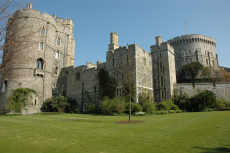
Emma Woodhouse, due to her position as the richest and most powerful woman in the whole of Highbury, has the status to decide who she wants to marry – if she decides she wishes to marry at all. She is therefore most suited to her lifelong friend Mr Knightley, probably the richest and most well respected man in Highbury. However, as Emma is, as she herself says, “Doomed to blindness”, she doesn’t realise that Mr Knightley is in love with her. Instead she believes he is attracted to Harriet, her lifelong friend who is neither wealthy nor well born and is not very bright – making her a poor match for Mr Knightly by the conservative standards of the day. Her blindness is a recurring theme throughout the novel, which is ironic when one considers her apparent intelligence.
Within Mr Knightley and Emma’s conversation in the Woodhouse’s garden in chapter 49, Mr Knightley reveals his envy at Frank Churchill saying, “He is a very fortunate man!” This exclamatory sentence illustrates Mr Knightley’s surprise at how Frank has ‘used every body ill’, including his betrothed wife Jane Fairfax whom he mocks continually throughout the novel, yet Jane Fairfax will still marry him. This is because no matter how Frank treats her she has to remain with him because otherwise her fate is to become a governess. Her status as an orphan, juxtaposed to Emma, significantly limits her options when it comes to marriage.
Reading this novel in the early twenty-first century, we see just how constricted people’s choices were at the start of the 19th century because their parents died at an early age. Or simply because they were born to a poor family – which would have been highly likely in Britain at the time since the middle classes were only just starting to emerge, with the upper classes still holding much of the nation’s power and wealth.
In some ways the reader can’t help but to feel sympathy for Fairfax, even though at times our protagonist Emma feels plenty of animosity towards her. The way in which society has been set up means that her already tragic circumstances (losing her parents at a young age) are made only more tragic. She is forced to marry a shallow man who does not respect her as any decent husband should.
But I digress. When Mr Knightley finally proposes to Emma in the chapter he uses superlatives to describe his love for her:
‘“My dearest Emma,” said he, “for dearest you will always be, whatever the event of this hour’s conversation, my dearest, most beloved Emma”’.
His honest, deeply felt, romantic expression illustrates the true love that he has for Emma. Furthermore, this language differentiates Mr Knightley and Emma from all the other couples, as no greater genuine admiration is shown and seen between two lovers in the novel. Their love is deliberately juxtaposed by Austen in this chapter with the love between Jane and Frank. Whereas Frank exploits his secret engagement with Jane, neglecting her to pursue his own selfish interests, Mr Knightley even pledges to leave his own home to please Emma and Mr Woodhouse, Emma’s father.
Image: By Josep Renalias (Own work) [CC BY-SA 3.0 (http://creativecommons.org/licenses/by-sa/3.0)], via Wikimedia Commons

0 Comment:
Be the first one to comment on this article.